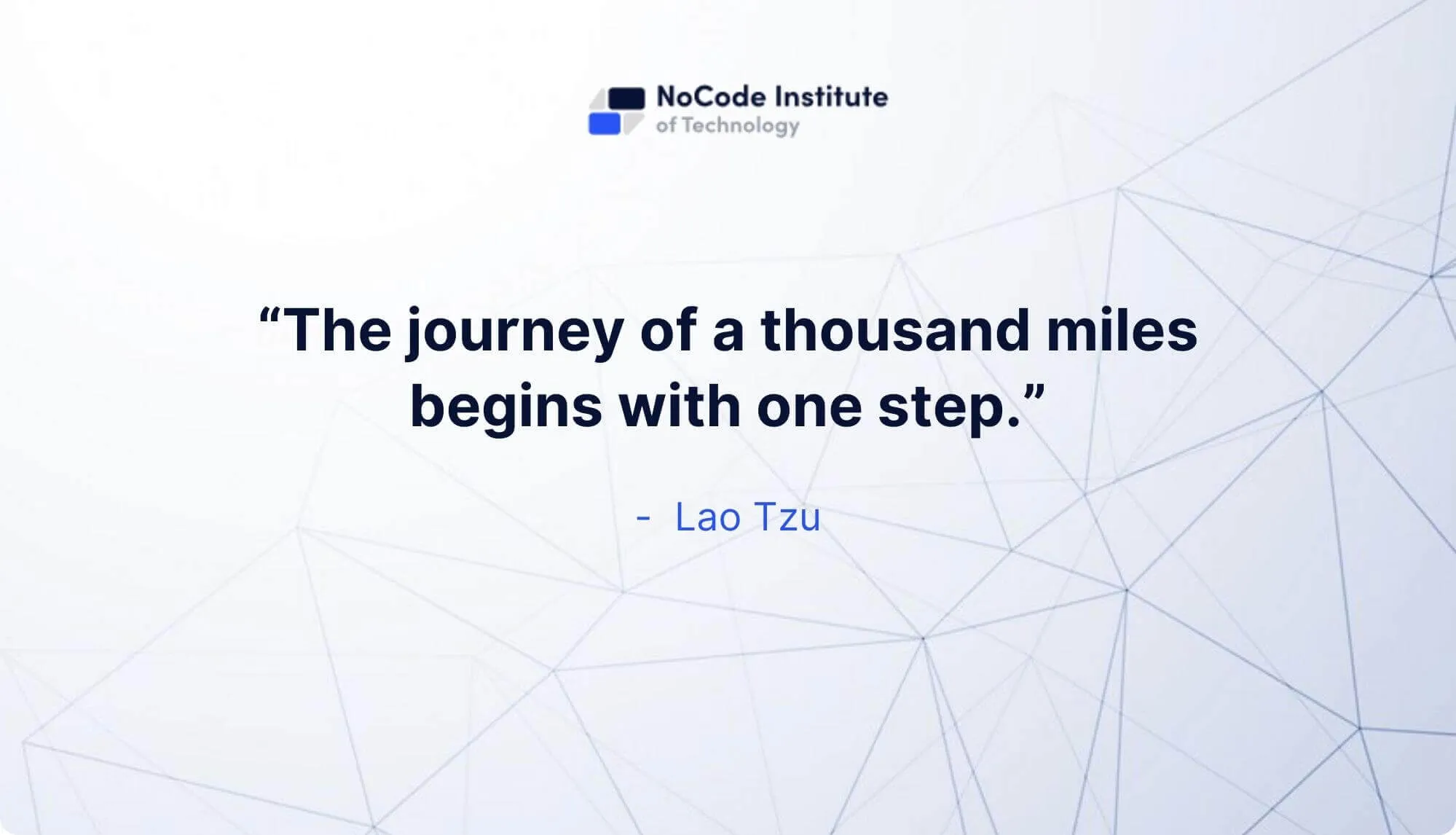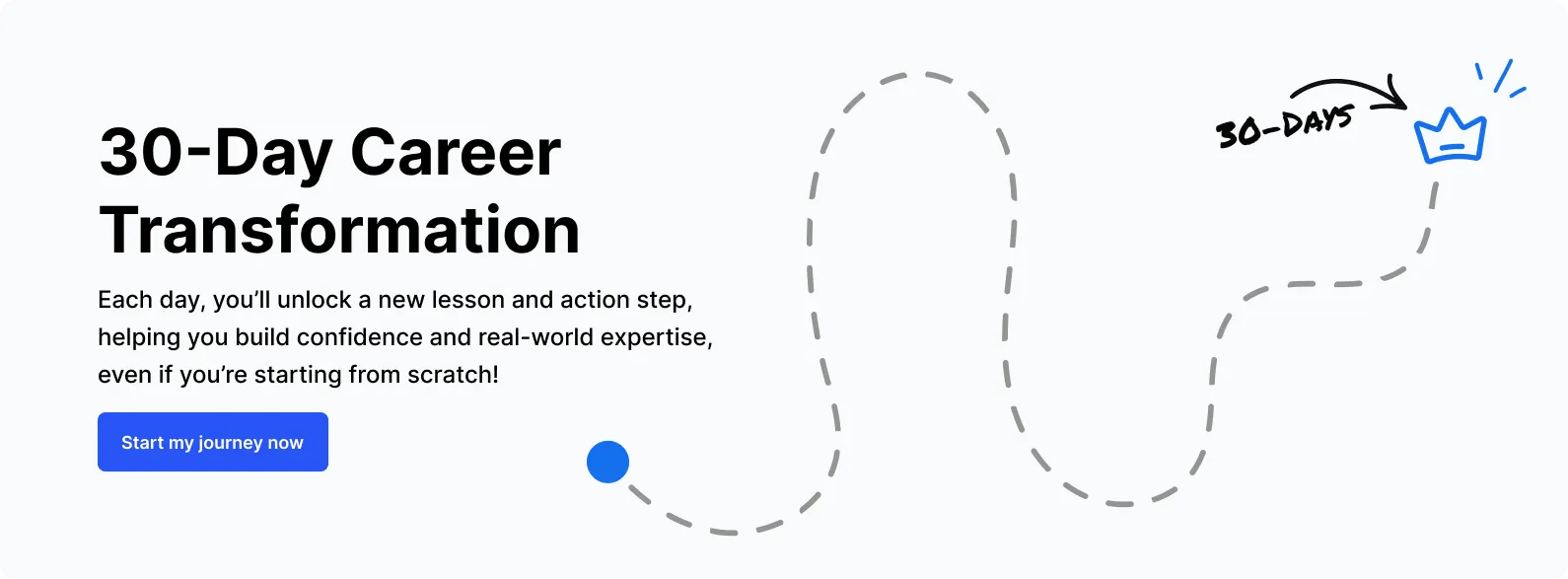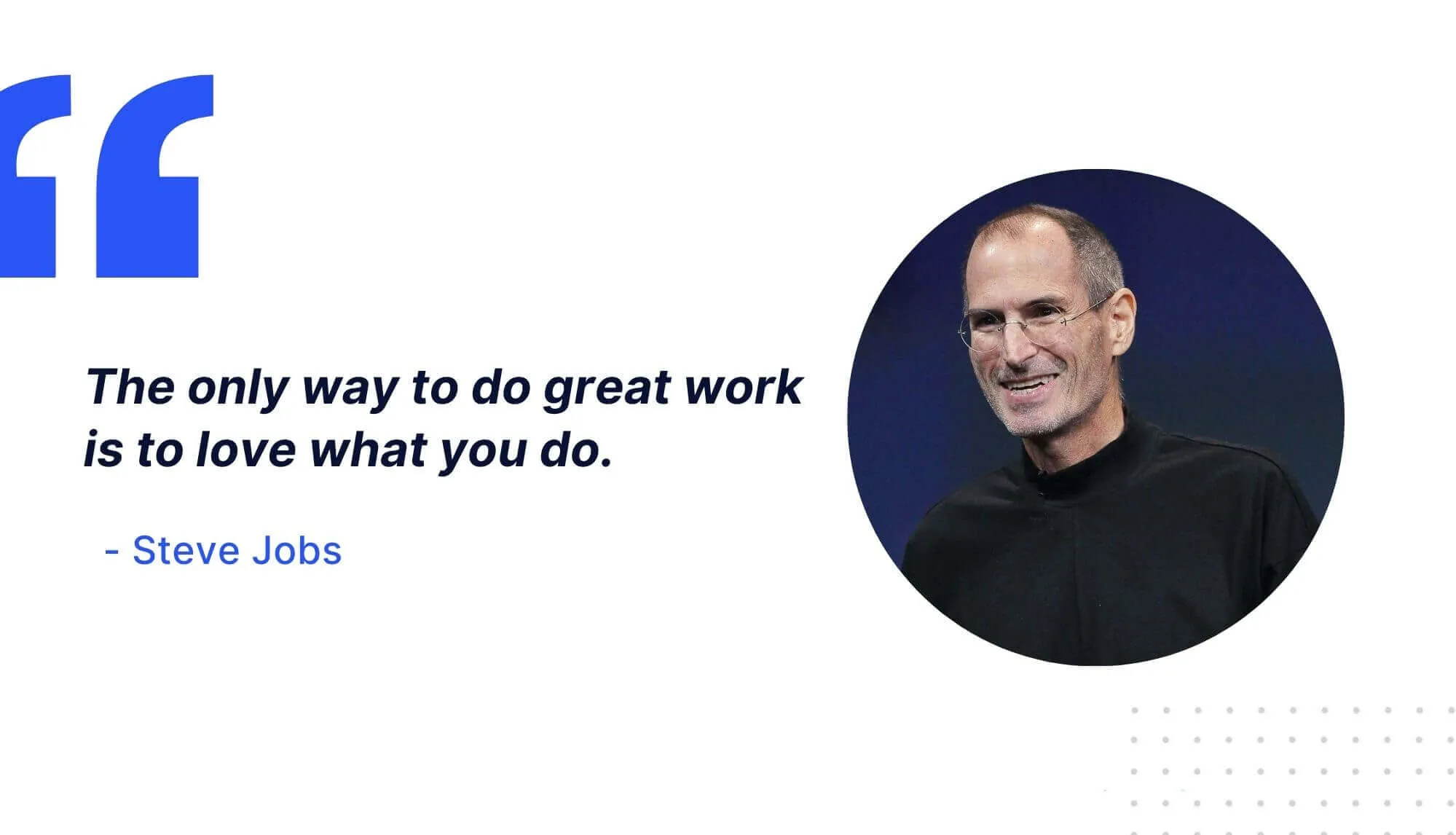20 Motivational Quotes for Career Change
Looking for inspiration to make a career change? These top 20 motivational quotes will empower you to embrace new opportunities and confidently navigate your career transition.
Table of contents

Looking for inspiration to make a career change? These top 20 motivational quotes will empower you to embrace new opportunities and confidently navigate your career transition.
Changing careers can feel like stepping into the unknown. It's a leap of faith that requires courage, determination, and a healthy dose of inspiration. That's where motivational quotes come in. These powerful snippets of wisdom can serve as a guiding light, providing the clarity and encouragement needed to take the next step.
Motivational quotes aren't just feel-good platitudes; they're concise, potent reminders of our potential and the possibilities that lie ahead. They have the power to cut through doubt and fear, offering a fresh perspective and a boost of confidence right when it's needed most. During times of career transition, when uncertainty can cloud judgment and hinder progress, the right words can act as a catalyst, propelling us toward our goals with renewed vigor and optimism.

In the following collection, you'll find 20 handpicked quotes designed to inspire and empower you on your journey. Whether you're contemplating a career shift, in the midst of one, or simply seeking a spark of motivation, these quotes will help you embrace new opportunities and navigate your path with confidence.

1. "The journey of a thousand miles begins with one step." – Lao Tzu
Every grand adventure starts with a single, courageous step. It's the willingness to take that initial step, even when the destination is unclear, that sets the stage for personal and professional transformation. Embracing new beginnings is about recognizing the potential in every fresh start and committing to move forward despite uncertainties.
2. "Change is the only constant in life." – Heraclitus
Change is inevitable, and embracing it rather than resisting it can lead to personal growth and new opportunities. Viewing change as a natural and positive part of life can help you adapt more easily to new career paths.
3. "You miss 100% of the shots you don't take." – Wayne Gretzky
Fear of failure often holds us back from pursuing new opportunities. This quote reminds us that inaction guarantees missed opportunities. It's better to try and fail than to never try at all. Overcoming fear starts with acknowledging it but not letting it dictate your choices.
4. "Doubt kills more dreams than failure ever will." – Suzy Kassem
Self-doubt can be a formidable barrier during a career change. It’s important to challenge these doubts and replace them with affirmations of your capabilities. Building confidence through small, consistent actions can help erode the power of doubt over time.
Here are a few practical tips to help you build that rock-solid confidence and navigate the journey with a bit more certainty:

5. "Life begins at the end of your comfort zone." – Neale Donald Walsch
True growth happens when you push yourself beyond your familiar boundaries. Embracing the unknown can lead to unexpected opportunities and achievements. When making a career change, stepping out of your comfort zone is essential for discovering your full potential.
6. "Do one thing every day that scares you." – Eleanor Roosevelt
Taking small, daily risks can build your confidence and resilience. These incremental steps help you become more comfortable with discomfort, making larger career changes less daunting. Embrace uncertainty, knowing that each risk taken is a step towards greater personal and professional growth.

7. "It does not matter how slowly you go as long as you do not stop." – Confucius
Persistence is key in navigating the ups and downs of a career transition. The story of Thomas Edison, who made thousands of attempts before perfecting the light bulb, illustrates that success is often a result of relentless perseverance.
Also consider the story of Elon Musk, who faced numerous setbacks and skepticism while pursuing his vision for SpaceX and Tesla. Yet, his unwavering belief in the possibility of space travel and sustainable energy transformed industries and achieved what many thought impossible.
8. "I have not failed. I've just found 10,000 ways that won't work." – Thomas Edison
Rejection and failure are part of the learning process. Each setback provides valuable lessons and opportunities for growth. Adopt a mindset that views failures as stepping stones to success, and use them to refine your approach and strategies.
9. "Failure is the condiment that gives success its flavor." – Truman Capote
Embrace failure as a natural part of the journey towards success. Every successful person has faced setbacks and learned from them. Use rejection and failure as motivation to persevere and improve, ultimately leading to greater achievements.

10. "The only way to do great work is to love what you do." – Steve Jobs
Passion fuels the drive for continuous learning and improvement. When you love what you do, seeking new knowledge and skills becomes a joyful pursuit rather than a chore. Lifelong learning is integral to adapting and thriving in a new career.
11. "Live as if you were to die tomorrow. Learn as if you were to live forever." – Mahatma Gandhi
This quote encourages a relentless pursuit of knowledge. In a rapidly changing job market, staying curious and committed to learning can open doors to new opportunities and career advancements.
12. "Believe you can and you're halfway there." – Theodore Roosevelt
Self-belief is the foundation of success. When you believe in your potential, you're more likely to take risks and seize opportunities. Cultivating a strong sense of self-belief can be as simple as acknowledging past achievements and reminding yourself of your strengths.
Here are some effective strategies for maintaining self-belief during a career change:
✨ Reflect on Past Achievements:
✨ Positive Affirmations:
✨ Focus on Strengths:
✨ Embrace a Growth Mindset:
13. "The two most important days in your life are the day you are born and the day you find out why." – Mark Twain
Discovering your purpose can transform your career. Reflect on what truly drives you and seek roles that align with this purpose to achieve a deeper sense of satisfaction and motivation.
5 practical exercises to help you uncover your passion and find a job you love
14. "Focus on your strengths, not your weaknesses." – Gary Vaynerchuk
Identify and leverage your unique strengths and talents in your new career. Reflect on past achievements and consider how your skills can be applied to new opportunities. Focusing on your strengths will boost your confidence and increase your chances of success.
15. "A goal without a plan is just a wish." – Antoine de Saint-Exupéry
Setting and reaching career goals is crucial for successfully navigating a career change. Here are three important techniques to help you turn your career aspirations into actionable plans:
🎯 SMART Goals Framework
Specific, Measurable, Achievable, Relevant, Time-bound:
🎯 Action Plan and Milestones
Break Down Your Goal into Manageable Steps:
🎯Continuous Review and Adaptation
Regularly Assess and Adjust Your Plan:
16. "The key is not to prioritize what's on your schedule, but to schedule your priorities." – Stephen Covey
Effective time management is crucial during a career change. Identify your top priorities and allocate time accordingly. Use tools like calendars, to-do lists, and productivity apps to stay organized and focused on your career transition goals.
Stephen Covey on Setting Priorities
17. "Your network is your net worth." – Porter Gale
Building strong professional relationships can open doors to new career opportunities. Attend industry events, join professional groups, and connect with others on LinkedIn. Networking can provide valuable insights, support, and potential job leads, significantly aiding your career transition.
18. "It's not what you know, but who you know." – Proverb
Leveraging your network can lead to unexpected career opportunities. Reach out to former colleagues, mentors, and industry contacts to let them know about your career change. Personal connections often play a pivotal role in finding new job opportunities and advancing your career.
19. "Creativity is intelligence having fun." – Albert Einstein
Embrace innovative thinking and explore unconventional career paths. Creativity can lead to unique solutions and open up new opportunities that align with your passions and skills. Don't be afraid to think outside the box and pursue a career that truly excites you.
20. "Keep your face always toward the sunshine - and shadows will fall behind you." – Walt Whitman
Focus on the positive aspects of your career transition. By keeping your attention on the opportunities ahead, you can push past doubts and fears.
Embarking on a career change is like venturing into uncharted territory. The journey can be daunting, filled with moments of doubt and uncertainty. However, as these 20 motivational quotes illustrate, the power of positive thinking and determination cannot be underestimated.
These motivational quotes and the accompanying insights are meant to inspire and guide you through the complexities of a career change. Embrace the journey with confidence, resilience, and an unwavering belief in your potential.
Looking to re-invent yourself and turn your talent into a career? Stay up to date with the latest.